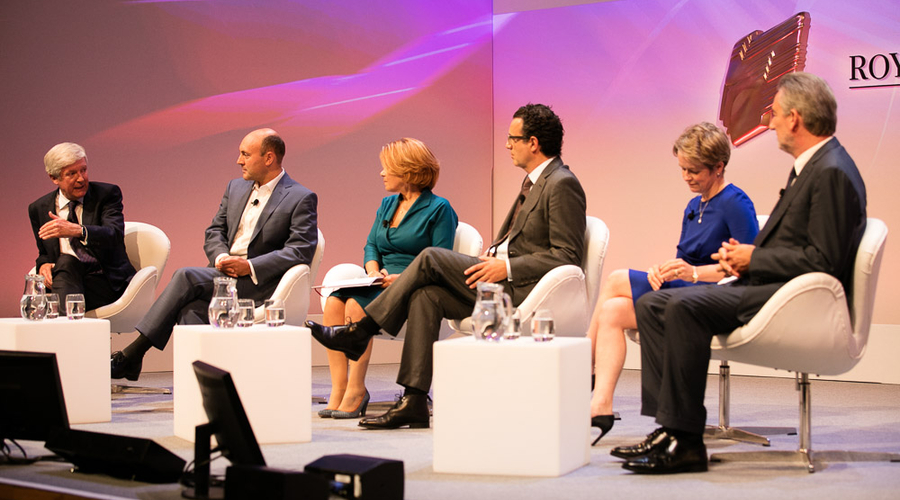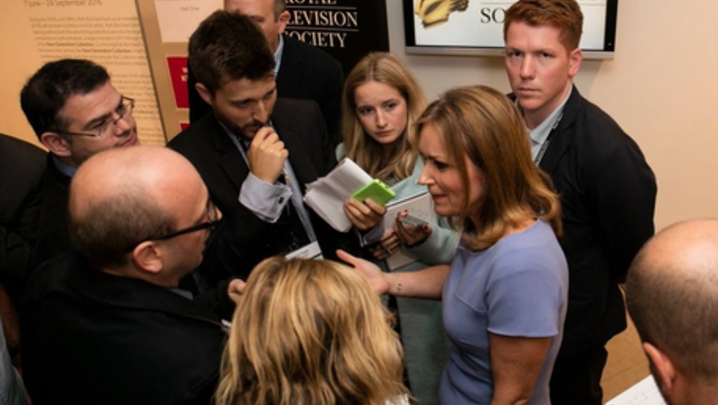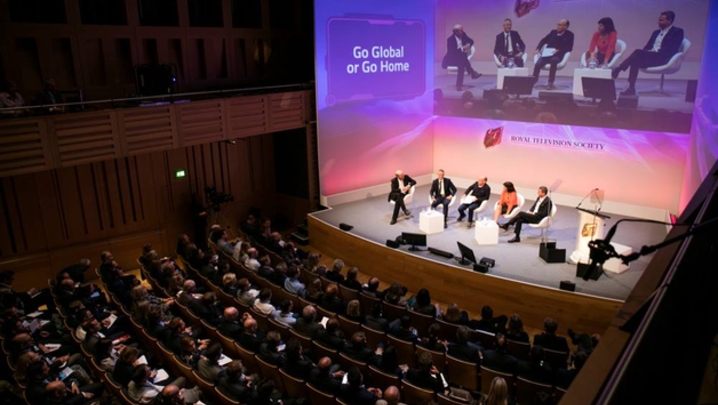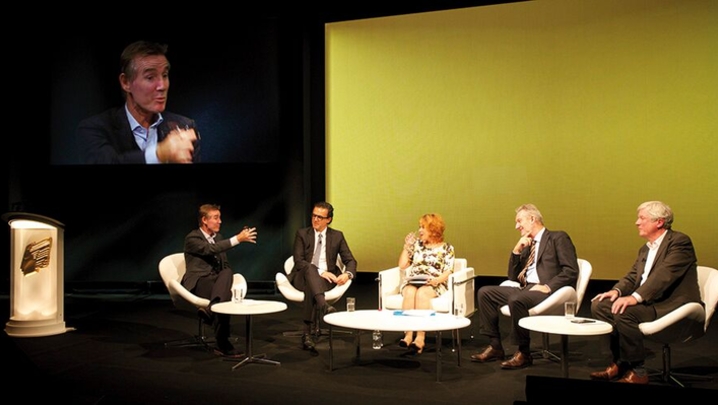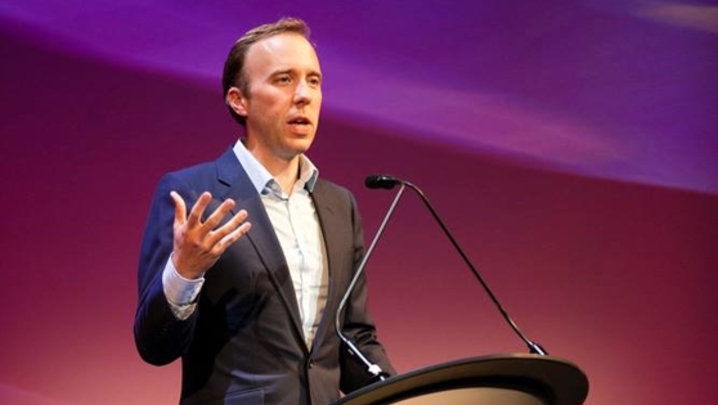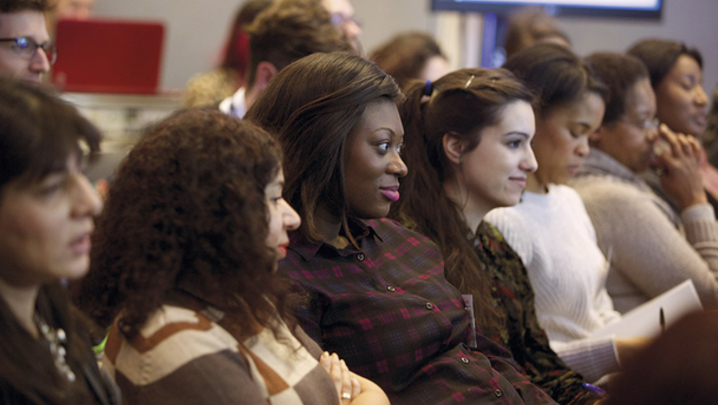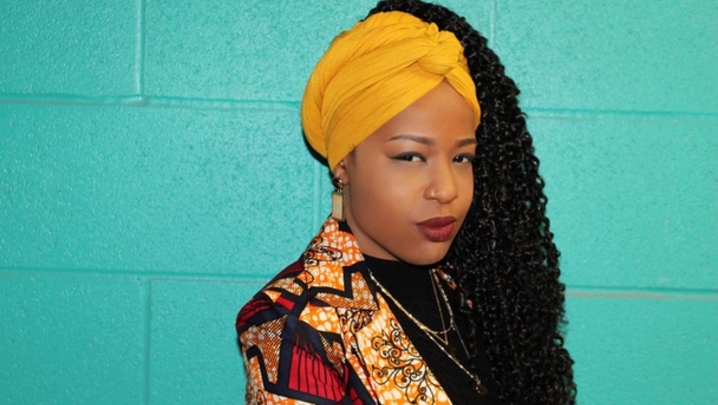The final session of the RTS London Conference served up a panel of TV big hitters to look back over the day’s events.
Among the subjects they covered were the UK’s inadequate digital infrastructure, Netflix, Brexit and, inevitably, The Great British Bake Off.
Matt Hancock’s speech in the previous session found favour with the panel. BBC chief Tony Hall welcomed the emphasis the Minister of State for Digital and Culture had put on “social and regional” diversity in television.
Sky’s Andrew Griffith applauded Hancock’s pledge to improve the UK’s digital infrastructure, pointing out that “there’s no point making the most wonderful programmes and having the most engaging experiences if consumers can’t actually experience them because we’ve got an ageing infrastructure”.
TalkTalk’s Dido Harding approved of the Government’s “passion for delivering for everyone. Littered through the speech in each of the policy areas, [Hancock] covered the important role that we’ve all got in uniting the country and bringing everyone on the digital journey.”
Virgin Media’s Tom Mockridge echoed the panel in applauding the “great sentiments” of the minister’s speech, but added that the UK’s digital policy was “a bit of a muddle”. He hoped that “the rhetoric” would be followed up with “more firm action”.
“It was a really positive opening statement to our industry, very upbeat and very supportive,” reckoned Channel 4’s David Abraham.
Referring to the BBC’s Charter renewal, he added: “I can’t help [look] longingly at Tony’s 11-year security into the future and hope that it won’t be too long before I might be in the same situation.”
“Running the BBC?” asked session chair Lorraine Heggessey to audience laughter.
Changing tack, Heggessey asked the panel about their organisations’ plans and, specifically, what they are offering viewers or consumers.
Abraham said that Channel 4 was adjusting to the “profound changes in the consumption patterns of consumers”.
He added that there was a balance to be found between “investing in technology to personalise the discovery of the content [and] the role of human curation to discover this immense library of content that we can provide to viewers”.
“The future could be about less-explosive change in technology and platforms,” he said, adding that the challenge was “how we combine the technology and creativity in ever more profound ways”.
"If we, as industry leaders, cannot grow our businesses at a time when consumers have so much choice… then we should all get out of the way"
Griffith predicted growth on “multiple fronts” at Sky. “If we, as industry leaders, cannot grow our businesses at a time when consumers have so much choice, and devices have gone
frictionless, so that consumers can consume so much more of what they want, then we should all get out of the way,” he said.
Hall argued that the BBC’s future boiled down to three things. “Number one is programmes. Number two is culture. I want a more diverse BBC, but I also want a simpler BBC. We’ve made lots of strides, but there’s a lot more work to do to make it a place where people really want to come and do the best work of their lives,” he said.
The third area was the BBC’s global ambitions. These included developing its UK radio output globally, as well as investing in the World Service, which received a funding boost from the Government last year.
In TV, Hall emphasised “building on those genres where we know we can match the world… and taking what we do [that] is great out to the world”.
He reiterated his opposition to revealing the pay of BBC talent earning more than £150,000 a year. “It’s one of the things we lost, but we won an awful lot,” he said, referring to the recent publication of the draft BBC Charter.
He then turned his thoughts to the BBC’s role as a programme-maker. “[BBC] Studios really matters,” he said, discussing the creation of the corporation’s new venture. “I don’t want to be a publisher broadcaster. That’s what Channel 4 does – and very [well]. I believe that, at the core of the BBC, we’re programme-makers, and I want us to build on that.”
Now that the BBC was opening up the majority of its flagship programmes to outside tenders, BBC Studios needed “a level playing field” to compete, he said.
"That nexus between technology and culture is our future economy’s sweet spot"
A week before the conference, the BBC announced the first shows, including Holby City and Songs of Praise, to be put out to independent producers. “I’m sure we’ll lose one or two things, but, in the long term, this is the right future for in-house [production],” added Hall.
Heggessey suggested that the loss of The Great British Bake Off to Channel 4 “illustrated more than anything the importance of the BBC owning its own [intellectual property]”.
“Bake Off is about IP, and we’ve got to develop our own IP,” replied Hall. “We all know that’s really hard – there’s no magic wand. You’re relying on really talented people coming up with good ideas that commissioners back.”
Heggessey asked whether Netflix was a threat to traditional broadcasters, revealing her frustration that she had to wait a week for the next episode of dramas such as Channel 4’s National Treasure or the BBC’s The Night Manager.
“I don’t buy that there’s now a law that says all drama has to be binge-watched,” replied Abraham.
“None of us has to deal with Netflix in a way – we’re just seeing growth in the overall market,” said Griffith. “It’s a fantastic time to be a producer because you’ve got more airtime to fill.
“We’re seeing video consumption go up,” he continued. “The fact that it’s different names, and sometimes different players, is just a way of servicing different consumer needs.”
Turning to Brexit, Mockridge said that it was a “fact of life”. He had wanted the UK to remain in Europe but admitted that, “so far, I’ve been proven wrong – the economy continues to have growth”.
“We’re very geared to the UK economy,” said Griffith. “We want to continue to invest here. We’re based here, headquartered here, most of our people are here. So far, so good.”
In an earlier session, former European trade commissioner Peter Mandelson had said that the creative sector needed a stronger and more prominent voice in Brexit negotiations to secure a good deal with Europe.
“A decade ago, I would have said that was probably true,” said Hall. “I think the creative industries, if you can lump them together in that sort of way, have really got their act together in the last decade. We are one of Britain’s great success stories and we should be building on that.”
Rivals turn the heat on BT
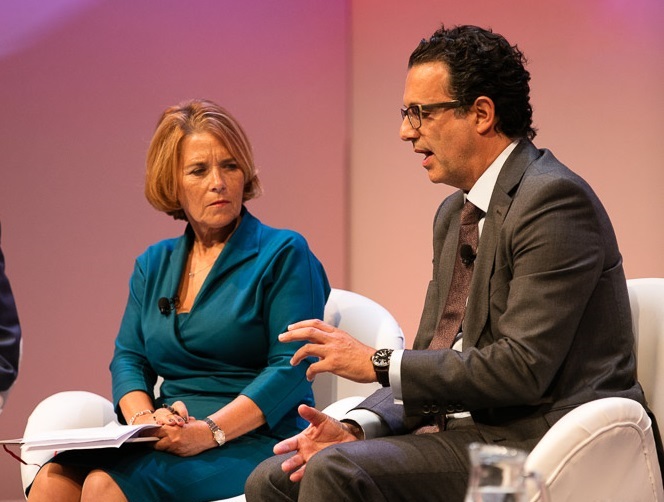
The UK’s digital infrastructure, or lack of, was a recurring topic throughout the session.
‘I don’t know whether it will be in five, 10 or 50 years, but, at some stage, all our video content will be transmitted into people’s homes by fibre-optic cables,’ said TalkTalk boss Dido Harding. But currently, she added, ‘we should be very worried that the country’s digital infrastructure doesn’t deliver at all’.
Virgin Media chief Tom Mockridge stressed the importance of making ‘superfast broadband deliver – because, often, it’s a label rather than a fact’.
He said that this would require putting ‘competitive pressure on BT’. The behemoth has faced much criticism about the performance of its infrastructure division, Openreach.
Mockridge added, to more audience laughter: ‘I think we all know that the best way to get a better service from BT is to live in a street that is served by Virgin Media.’
‘TalkTalk exists to demonstrate that you don’t have to pay a premium for speed,’ said Harding. ‘To take the fight back to Mr Mockridge, we think there is a space for a value-for-money provider in the connectivity market that gives you phone, broadband, TV and mobile, where you’re not trying to protect a premium.
‘In the TV context, it means allowing people to choose from the amazing array of content providers we have in the UK. I genuinely don’t mind which channel Bake Off is on, as long as my customers can watch it somewhere.
‘I think there is a meaningful group of consumers in the UK who want to access the content they want, rather than the full-fat packages that maybe my competitors offer.’
Harding also called for Openreach to be ‘genuinely and properly separate, so that it is clear and visible what it is and is not doing’.
She added: ‘The fact that we can have an endless argument about whether or not BT has funded sports rights purchases from Openreach profits, because it’s completely opaque what its accounting actually is, tells you that the current [model] isn’t good.
‘I believe in competition – I’d like a level playing field,’ she stressed. ‘If you were starting with a blank sheet of paper, you would not have the owner of the nation’s core infrastructure be the retail competitor of that infrastructure’s other customers.’
Sky’s Andrew Griffith agreed with Harding’s analysis. ‘On BT, the structural separation [of Openreach] has to be a when, not an if.’
The panellists were Channel 4 CEO David Abraham; Sky Group Chief Operating Officer Andrew Griffith; BBC Director-General Tony Hall; TalkTalk CEO Dido Harding; and Virgin Media CEO Tom Mockridge. The session was chaired by former BBC One Controller and current Chair of the Grierson Trust Lorraine Heggessey. It was produced by Sue Robertson and Martin Stott.

